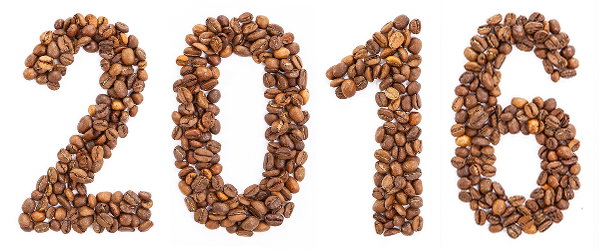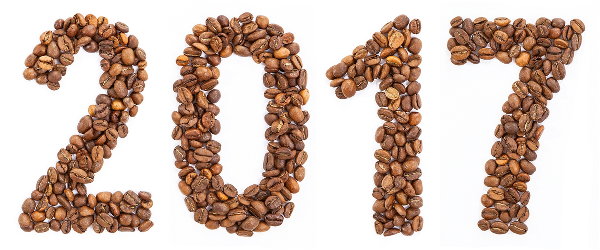7 Things I Learned Interning At Cape Coffee Beans
 As an intern at Cape Coffee Beans from the beginning of June to August, I learned more about coffee than I ever expected. As your stereotypical college student who is always on the go, I never got to spend time brewing speciality coffee. I always just grabbed a cafe latte or americano to go, thinking that was all I would ever need. After spending hours on hours working with different types of coffees and brewing styles, I realized I was doing it all wrong! I decided to create a little blog post about my experience working at Cape Coffee Beans and share a couple of the things I’ve learned about the world of coffee.
As an intern at Cape Coffee Beans from the beginning of June to August, I learned more about coffee than I ever expected. As your stereotypical college student who is always on the go, I never got to spend time brewing speciality coffee. I always just grabbed a cafe latte or americano to go, thinking that was all I would ever need. After spending hours on hours working with different types of coffees and brewing styles, I realized I was doing it all wrong! I decided to create a little blog post about my experience working at Cape Coffee Beans and share a couple of the things I’ve learned about the world of coffee.
1) Brewing method makes a difference
When Phaedon first told me that certain coffees could taste different depending on the brew method, I must admit that I didn’t entirely believe him. I thought to myself, “how could a style of brewing affect a coffee’s flavor?”. I figured if a coffee was roasted a certain way, it would have the same flavor no matter which method you chose to brew it with. Through a bit of experimentation, I found that certain coffees that were less to my liking in a pour-over would taste great in a French press and vice-versa. The method of extraction seems to accentuate certain characteristics more than the others, creating two different cup profiles. I’m now taking note of which coffees I enjoy in which brew method.
2) You can brew a cappuccino at home with a simple machine
Whenever I thought of brewing a homemade latte or cappuccino, the first image that popped into my mind were those fancy espresso machines you see at cafes or restaurants. I knew those were out of my budget, so I’ve always opted for take-away lattes from my local cafe. Then I discovered the Bialetti Mukka. It’s an all-in-one cappuccino maker that is small, portable and brews coffee and froths milk on a stovetop. It may not be quite the same thing as a barista-made cappuccino, but I still think it’s a game changer as it hits the spot without the big investment. For cappuccino lovers who just want a single milky coffee drink in the morning, it may be just the ticket.
3) Don’t buy pre-ground coffee
Quality obviously trumps quantity when it comes to coffee. After settling for pre-ground coffee at home for most of my life, I had become used to the taste of stale coffee and I didn’t even know it. I always bought pre-ground because it seemed more convenient. I figured since pre-ground coffee is usually sealed tight, the coffee would stay just as fresh as coffee straight from a grinder. I came to realize within my first day of work at Cape Coffee Beans that I was wrong. Brewing coffee with freshly ground beans creates a flavor that is impossible to get with pre-ground coffee. I even started to drink my coffee black (which is something I usually never do). I’m really glad to be heading back to The States with my going-away-present Hario hand grinder, as I don’t think I’d be able to go back to pre-ground coffee after tasting it fresh!
4) It’s a lot of fun to try different coffees
My home town is a little area in The United States, located in the state of New Hampshire and is the complete opposite of a city. There a few different coffee shops but I had tasted all of their coffees and picked my favourite years ago. Instead of expanding my search in coffee, I would visit this same coffee shop weekly and buy the same thing over and over. I never knew I was missing out on so many unique coffee flavors. Working at Cape Coffee Beans and trying dozens of different coffees, from numerous different origins, opened me up to a new spectrum of flavour to enjoy. Each coffee has something unique to offer which adds a little bit of excitement to the usual morning coffee routine.
5) There are real coffee geeks out there
Before I started interning at Cape Coffee Beans, I would have almost considered myself a coffee geek. By knowing the different types of roast, all the different brew methods (or what I thought was all of them) and having knowledge of the different styles of coffee drinks, I thought I was the ultimate coffee lover. Having worked here opened my eyes to an entire world of coffee I didn’t even know existed. Talking to many different customers, I learned that South Africans are serious about their coffee. Cape Coffee Beans has a group of customers and clients who go above and beyond for a good cup of coffee. Some even go to the different brew competitions on the hunt for the perfect coffee and I aspire to reach that level of coffee fanaticism. I must admit that when I moved here, I didn’t even realize that people were weighing their beans to get a consistent brew ratio. Having lived with coffee-loving Capetonians for two months, I’ve learned I have a long way to go to become a real coffee geek.
6) Espresso doesn’t have more caffeine than a cup of coffee
Somewhere along the way of my coffee journey through life, I had gotten the idea that espresso has more caffeine than a regular cup of coffee. In reality, a double shot of espresso only has 80mg of caffeine whereas filter-style coffees can have a lot more. Whenever I thought of a latte or americano, I would associate it with a higher caffeine content. Little did I know that a regular cup of coffee would have done the trick even better than my espresso drink of choice. After switching to pour-overs, I could already see a slight improvement in my Monday morning work speed.
7) Entrepreneurship is worth the long-term efforts
My entire life I have wanted to open up my own business which is why I was so excited about coming to South Africa to work for Cape Coffee Beans. I needed the experience of working for a start-up company and being able to watch them grow. I had taken many entrepreneurship classes but I knew it would be more informative to experience a small business first-hand. I had the opportunity to work with two great entrepreneurs, Phaedon and Dianne, who own Cape Coffee Beans and Studio2Pilates, two successful small businesses that I was lucky enough to immerse myself in, while observing what makes them operate efficiently on a day to day basis. Although it involves hard work (and very few days off) I can see the efforts pay off when you are doing something you enjoy. Even just interning for two months, I started feeling a sense of satisfaction when CCB had a big day of orders or I saw more people at a pilates class. This has given me a little taste of what it would be like to open up a business and I feel grateful to have learned many tips that I will use in the future when it comes time to open my own.
About Courtney Malloy

Courtney is originally from the state of New Hampshire, in the US, currently attending Plymouth State University. She interned with CCB for two months and is continuing studies in business management and economics with a background in finance. She's a lover of surfing, snowboarding, hiking and coffee!!
You can follow Courtney on LinkedIn




